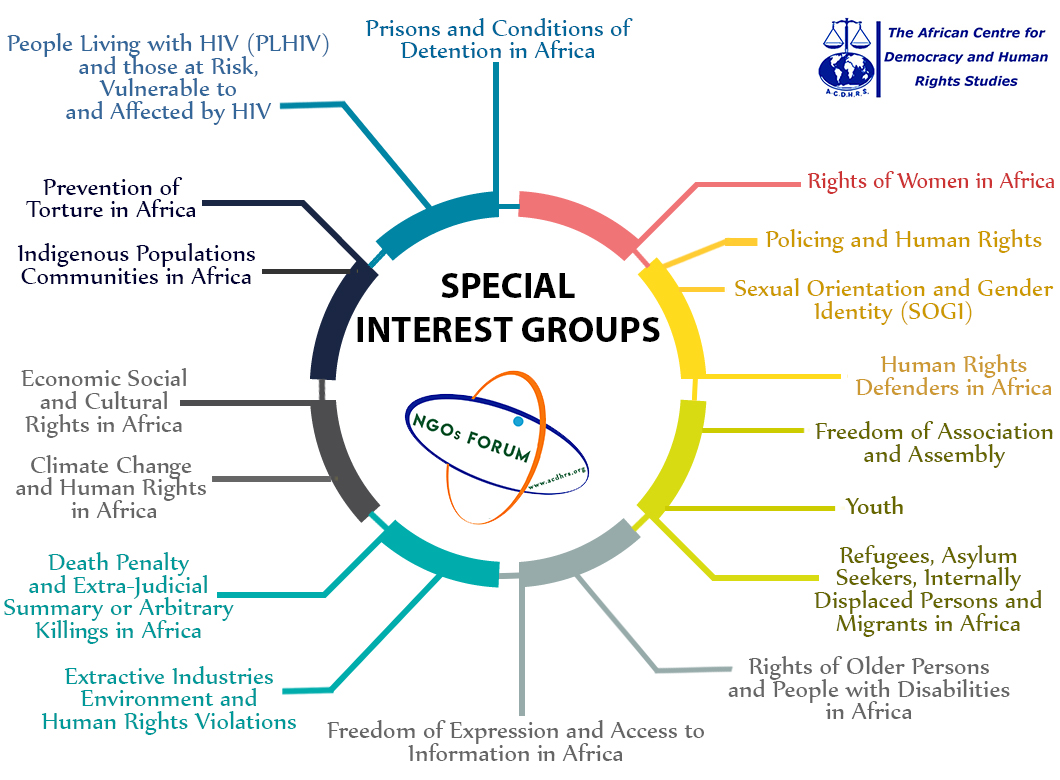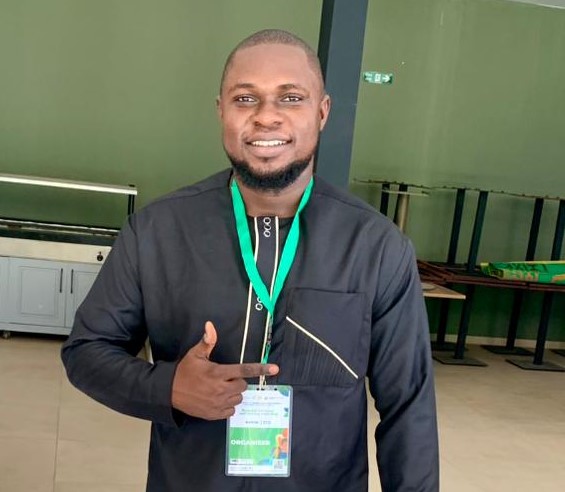
DATES: 17th – 19th October, 2025.
Background and Justification:
The concept of reparations encompasses acknowledgment, redress, and compensation for historical and contemporary injustices. For Africa and its diaspora, reparations are tied to centuries of slavery, colonialism, systemic racism, and the exploitation of people and resources. Reparations are not limited to financial compensation but also include recognition of the past violations, restitution, rehabilitation, guarantees of non-repetition, and symbolic measures that restore dignity and promote healing.According to the Global Slavery Index (2023), over 50 million people globally live in modern slavery, with Africa accounting for nearly 7 million of those affected. Country-specific data shows the magnitude of the problem: Nigeria has an estimated 1.61 million victims of modern slavery (7.8 per 1,000 people), Ethiopia has 727,000 (6.3 per 1,000), Egypt has 442,000 (4.3 per 1,000), and the Democratic Republic of the Congo (DRC) has 407,000 (4.5 per 1,000) . These figures highlight how systemic exploitation continues to affect millions across the continent.
Child marriage, another rights violation, remains widespread. In Nigeria, around 43% of girls are married before age 18 and 17% before 15; in Ethiopia, 40% before 18 and 14% before 15; and in the DRC, 37% before 18 and 10% before 15. Such practices perpetuate cycles of poverty, exclusion, and gender inequality, reinforcing the urgency of reparations frameworks that are gender-sensitive and inclusive.
Illicit financial flows (IFFs) are another obstacle to justice and development. The African Union estimates that the continent loses US$88.6 billion annually through IFFs, equivalent to 3.7% of Africa’s GDP . These losses drain resources that could be invested in health, education, human rights protections, and reparations mechanisms.
Across the continent, Africa continues to face governance, economic, and human rights challenges that deepen structural inequalities. These include unconstitutional changes of government, shrinking civic space, impunity for violations, manipulation of electoral processes, environmental degradation, and continued violations against women, youth, persons with disabilities, and indigenous peoples. The NGOs Forum preceding the 85th Ordinary Session of the ACHPR will be a continuous discussion of the previous forum and also provide a space to reflect on these pressing concerns through the lens of reparations and broader human rights advocacy.
OBJECTIVE & THEMATIC FOCUS
OBJECTIVE
• Enhance understanding of the need for reparations among NGOs, policy makers, and the public.
• Create a platform for dialogue among stakeholders, including civil society organizations, researchers, and policy makers.
• Collaborate to formulate actionable strategies for advocating reparations at local, national, and international levels.
• Share case studies and models of successful reparations initiatives from around the world.
THEMATIC FOCUS: Consequently, the Forum will also deliberate on the following sub-themes;
1. Reparations: Historical Justice and Contemporary Relevance
Reparations for slavery, colonialism, and systemic racism remain central to the human rights agenda. Beyond symbolic recognition, reparations are critical for addressing intergenerational trauma, economic inequalities, and the restitution of stolen cultural heritage. Calls for restitution have grown stronger, with global advocacy demanding that reparations be integrated into development and justice frameworks.
2. Unconstitutional Changes of Government in West and Central Africa
In recent years, West and Central Africa have witnessed repeated unconstitutional changes of government, including in Mali, Guinea, Chad, Burkina Faso, and Gabon. These power shifts undermine democratic principles, destabilize societies, and exacerbate human rights violations. Addressing these crises requires accountability and measures to restore trust in governance systems.
3. Shrinking Civic Space and Restrictions on Freedoms
Civil society continues to face repression, with governments across Africa restricting freedoms of assembly, association, and expression. Reports from countries such as Cameroon, Ethiopia, Angola, Kenya, and Egypt highlight systematic crackdowns on human rights defenders, journalists, and NGOs. Shrinking civic space undermines the role of civil society in promoting reparative and transformative justice.
4. Elections, Democracy, and the Third-Term Phenomenon
The manipulation of constitutions to allow third presidential terms has become an emerging threat to democracy in Africa. This phenomenon, observed in several states, weakens democratic institutions and erodes public trust. The Forum will highlight the human rights implications of electoral manipulation and authoritarian entrenchment.
5. Impunity for Human Rights Violations
Across the continent, impunity persists for gross human rights violations, including extrajudicial killings, torture, and sexual and gender-based violence. Reparations cannot be meaningful without accountability, and addressing impunity is key to ensuring non-repetition and transitional justice.
6. Environmental Rights and Protection of Indigenous Peoples
Environmental degradation, climate change, and exploitation of natural resources disproportionately affect indigenous communities and marginalized groups. Land dispossession, deforestation, and extractive industries have led to widespread displacement. Linking environmental justice with reparations ensures that vulnerable communities receive redress for the destruction of their livelihoods and ecosystems.
7. People of African Descent and Reparations
Diaspora communities continue to demand reparations for slavery and colonial exploitation. Global initiatives have highlighted the need for restitution, cultural recognition, and acknowledgment of the role of Africans in shaping global history. Strengthening solidarity between Africa and its diaspora is essential in advancing the reparations agenda.
8. Global Political and Economic Challenges
Illicit financial flows, exploitation of natural resources, and debt burdens continue to deprive African states of critical resources for development. Reparations must be connected to global economic justice, including the fair distribution of wealth and resources.
9. Rights of Vulnerable Groups
Women, youth, the elderly, persons with disabilities, and survivors of gender-based violence remain disproportionately affected by inequality and discrimination. Gender-sensitive and inclusive reparations frameworks are critical for ensuring justice that addresses the needs of all vulnerable groups.
10. The African Union Convention on Ending Violence Against Women and Girls
The African Union Convention on Ending Violence Against Women and Girls, adopted as a landmark instrument, reflects the continent’s commitment to eliminating all forms of gender-based violence and harmful practices. It seeks to harmonize legal frameworks, strengthen accountability, and provide comprehensive measures for prevention, protection, and survivor-centered responses across Member States. This Convention is pivotal to advancing gender equality, human rights, and sustainable development in Africa.
PROPOSED TOPICS AND PANEL DISCUSSIONS
Panel 1: Reparations – Justice for Africans and People of African Descent
• This panel will explore the moral, legal, and economic foundations of reparations, addressing both historical wrongs and present-day injustices. It will discuss intergenerational trauma, systemic inequalities, structural hierarchies, social stratification, Patriarchal and the restitution of cultural heritage, emphasizing how reparations can promote healing and empowerment.
Focus:
• Historical roots of reparations: slavery, colonialism, and systemic racism.
• Contemporary relevance: economic inequality, cultural restitution, and intergenerational trauma.
• Practical frameworks for implementing reparations at national and regional levels.
• Multidimensional responses to historical injustice.
• persistent discriminatory practices and perceptions in societies.
Panel 2: Governance and Unconstitutional Changes of Government
Examining the recent spate of coups in West and Central Africa and their negative impact on democracy, human rights, and regional stability, this panel seek to highlight the role of civil society and regional bodies in restoring democratic legitimacy.
Focus:
• Case studies of recent coups in Mali, Guinea, Chad, Burkina Faso, and Gabon.
• Impact of unconstitutional changes on democracy, stability, and human rights.
• Role of regional mechanisms in restoring legitimacy and accountability.
Panel 3: Civic Space Under Threat
The Forum under this panel will address the shrinking civic space across Africa, where human rights defenders, journalists, and NGOs face increased repression. It will explore strategies for safeguarding civil liberties and ensuring meaningful participation in democratic processes.
Focus:
Shrinking freedoms of assembly, association, and expression.
• Examples from Cameroon, Ethiopia, Angola, Kenya, and Egypt.
• Strategies for protecting civic actors and advancing advocacy under repression.
Panel 4: Democracy, Elections, and the Third-Term Syndrome
Exploring how constitutional manipulation to enable third-term presidencies undermines democracy, weakens institutions, and fuels political instability, the deliberations will examine the role of civil society in promoting transparent and fair elections.
Focus:
• The phenomenon of third-term presidencies and constitutional manipulation.
• Human rights consequences of electoral malpractice.
• Civil society’s role in safeguarding democracy.
Panel 5: Ending Impunity for Human Rights Violations
Highlighting the dangers of entrenched impunity for gross violations such as extrajudicial killings, torture, and sexual violence, this Panel will underscore the importance of accountability as a cornerstone for justice and meaningful reparations.
Focus:
• Persistent impunity for extrajudicial killings, torture, and SGBV.
• Persistent impunity for extrajudicial killings, torture, and SGBV.
• Strengthening accountability through regional and international frameworks.
Panel 6: Environmental Justice and Indigenous Peoples’ Rights
This panel will examine the intersection of environmental degradation, climate change, and human rights, focusing on how indigenous and marginalized communities bear the brunt of exploitation. It will highlight the importance of reparations in addressing ecological harm and protecting livelihoods.
Focus:
• Environmental degradation and land dispossession.
• Impacts on indigenous peoples and vulnerable communities.
• Reparations for environmental harm and resource exploitation.
Reparations for environmental harm and resource exploitation.
Underscoring the pivotal role of people of African descent in championing reparations, restitution, and global solidarity, the diaspora serves as both a living testament to historical injustices and a powerful force for mobilizing international advocacy, this panel will seek to strengthen Diaspora advocacy for reparations.
Focus:
• Building bridges between local African struggles and global movements.
• Amplifying African voices on the world stage through solidarity networks.
Panel 8: Global Economic Justice and Reparations
Situates reparations within broader debates on global economic justice, highlighting illicit financial flows, debt burdens, and resource exploitation. Reparations are framed as a tool for redress and redistributive justice.
Focus:
• Addressing illicit financial flows and economic exploitation.
• Linking reparations to redistributive justice and resource sovereignty.
• Exploring reparations as a driver of structural transformation and Agenda 2063.
Panel 9: Protecting the Rights of Vulnerable Groups
Stresses that reparations must be inclusive, gender-sensitive, and responsive to marginalized communities to foster healing, social cohesion, and human rights.
Focus:
• Addressing the needs of youth, women, persons with disabilities, rural communities.
• Ensuring inclusivity in reparations processes so no one is left behind.
• Increased awareness on the centrality of reparations in achieving justice and healing for Africans and people of African descent.
• Strengthened advocacy for accountability, governance, and the protection of human rights.
• Enhanced networking and partnerships among civil society actors.
Panel 10: The African Union Convention on Ending Violence against Women and Girls
This panel will concretely explore how the AU Convention can be leveraged to strengthen the fight against Transnational Organized Crimes (TOC). Many forms of TOC such as trafficking in persons, sexual exploitation, and contemporary forms of slavery disproportionately affect women and girls, making the Convention a vital tool for accountability and protection.
Focus:
• Strengthening legal and policy frameworks to criminalize all forms of TOC and gender-based violence.
• Mobilizing resources and partnerships for survivor-centered services and access to justice.
• Enhancing monitoring and accountability mechanisms at national and regional levels.
Status of Human Rights and Democracy in Africa
Special Interest Groups Discussions

Networking for Human Rights in Africa
Languages:
Participants:
VENUE
Expected Outcomes
- Increased Awareness: A more informed dialogue on reparations within civil society and among policymakers .
- Collaborative Framework: Formation of networks and partnerships to advocate for reparative justice.
- Action Plan: A concrete action plan outlining steps for NGOs to take in promoting reparations.
- Documentation: A comprehensive report summarizing discussions, findings, and recommendations from forums.
Visa:
Accommodation:
REGISTRATION
PANEL FEES
Kindly complete the panel request form below no later than Sunday, 15thth September, 2025. Please note that the African Centre is not obliged to receive and process panel requests received after the deadline. Partners are required to contribute the amount US$300.00 (three hundred US Dollars) for all approved requests as their contribution towards the organization of the NGOs Forum.
Please note that for panel requests to be considered by the Steering Committee of the NGOs Forum, all requests must be framed around the theme of the Forum.
Side Event
Kindly complete the Side Event request form below no later than Sunday, 15thth September 2025. Please note that the African Centre is not obliged to receive and process Side Event requests received after the deadline. Partners are required to contribute the amount US$500.00 (Five Hundred US Dollars) for all approved requests as their contribution towards the organization of the NGOs Forum.
Administrative Fees for side events:
However, if the African Centre is informed of the organization of the side event only for its information, then the Partner would not be required to pay the administrative fee.
Please disseminate this information to your networks as widely as possible



